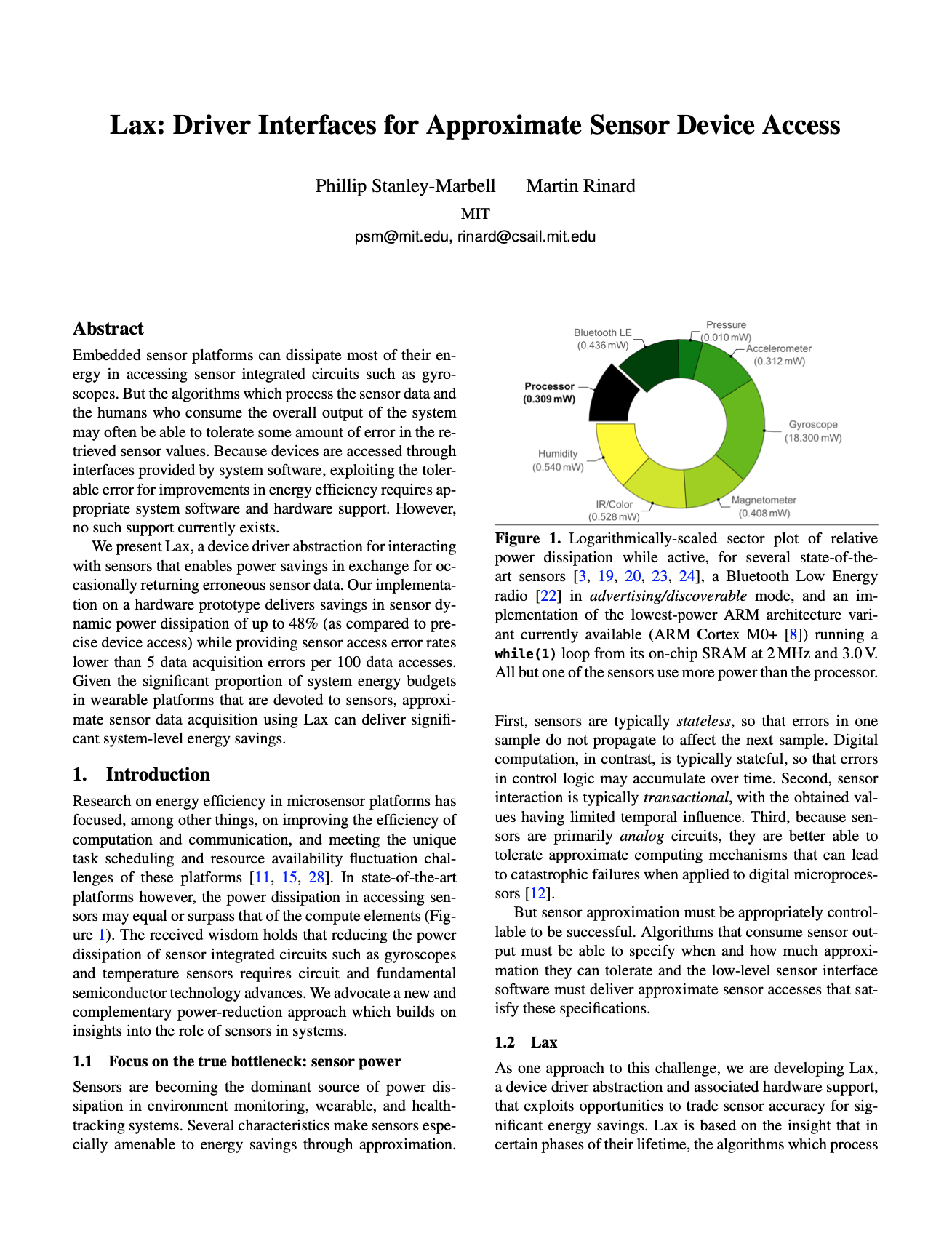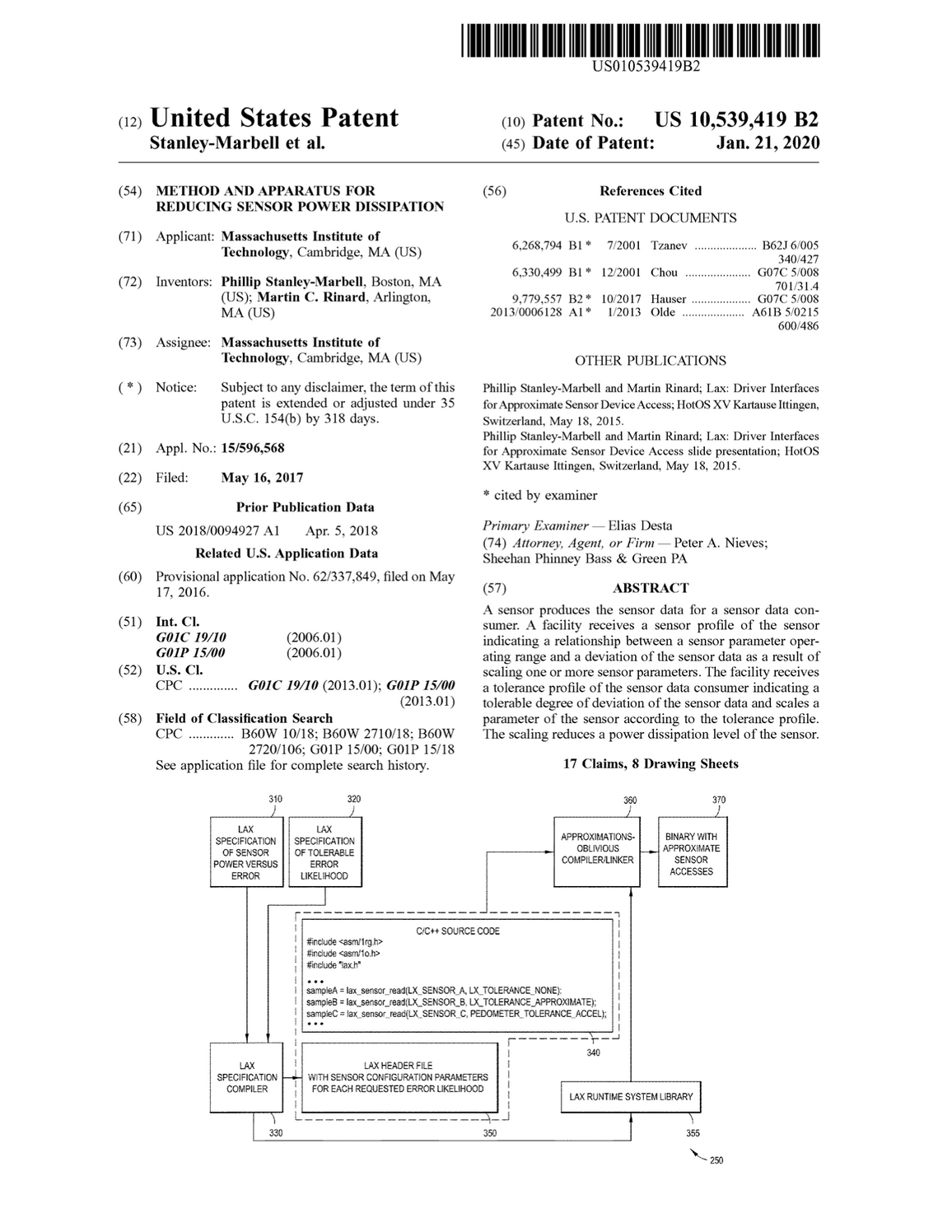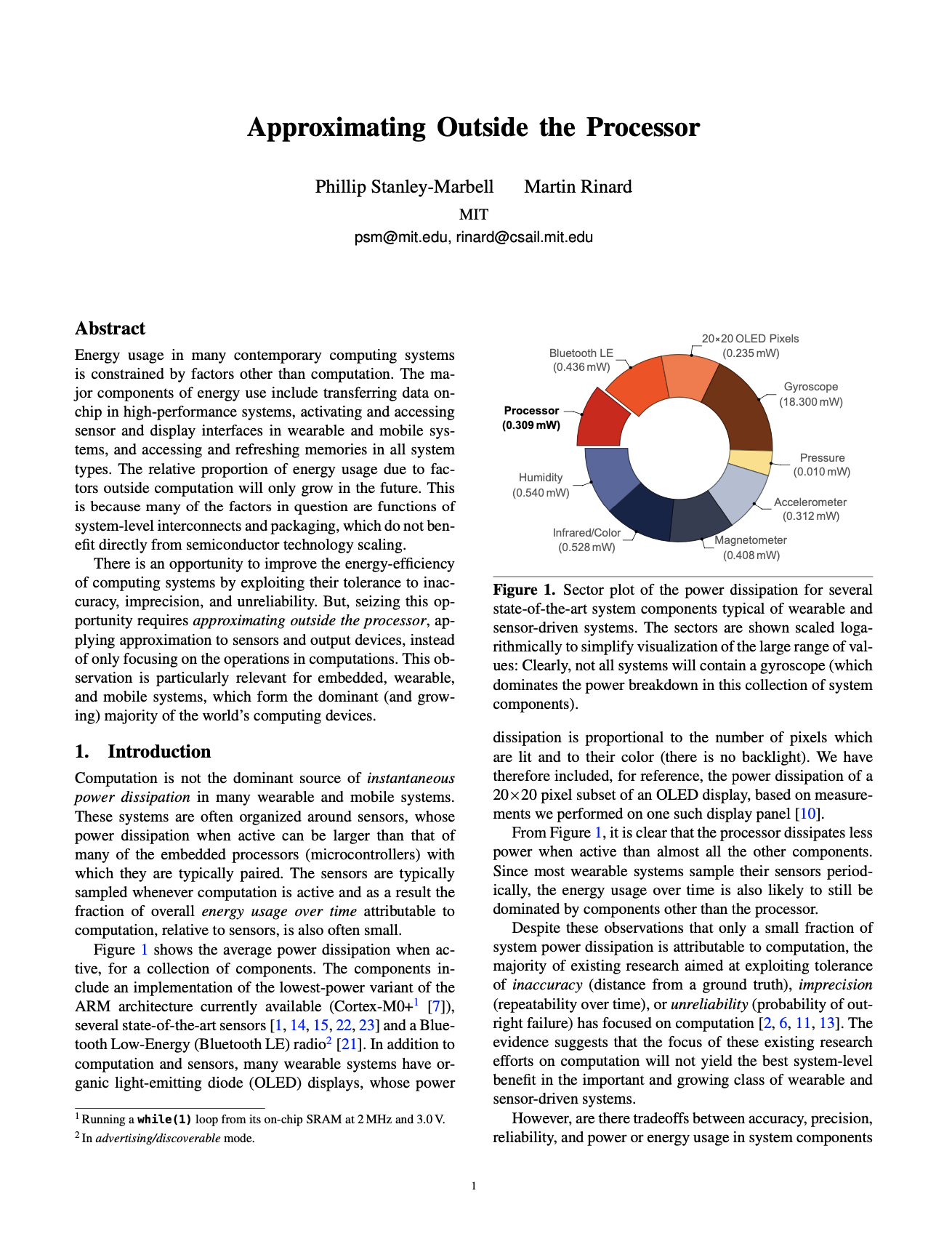Lax: driver interfaces for approximate sensor device access

Abstract
Embedded sensor platforms can dissipate most of their energy in accessing sensor integrated circuits such as gyroscopes. But the algorithms which process the sensor data and the humans who consume the overall output of the system may often be able to tolerate some amount of error in the retrieved sensor values. Because devices are accessed through interfaces provided by system software, exploiting the tolerable error for improvements in energy efficiency requires appropriate system software and hardware support. However, no such support currently exists.
We present Lax, a device driver abstraction for interacting with sensors that enables power savings in exchange for occasionally returning erroneous sensor data. Our implementation on a hardware prototype delivers savings in sensor dynamic power dissipation of up to 48% (as compared to precise device access) while providing sensor access error rates lower than 5 data acquisition errors per 100 data accesses. Given the significant proportion of system energy budgets in wearable platforms that are devoted to sensors, approximate sensor data acquisition using Lax can deliver significant system-level energy savings.
Cite as:
Phillip Stanley-Marbell and Martin Rinard. 2015. Lax: driver interfaces for approximate sensor device access. In Proceedings of the 15th USENIX conference on Hot Topics in Operating Systems (HOTOS'15). USENIX Association, USA, 27.
Bibtex:
@inproceedings{10.5555/2831090.2831117,
author = {Stanley-Marbell, Phillip and Rinard, Martin},
title = {Lax: Driver Interfaces for Approximate Sensor Device Access},
year = {2015},
publisher = {USENIX Association},
address = {USA},
booktitle = {Proceedings of the 15th USENIX Conference on Hot Topics in Operating Systems},
pages = {27},
numpages = {1},
location = {Switzerland},
series = {HOTOS'15}
}




